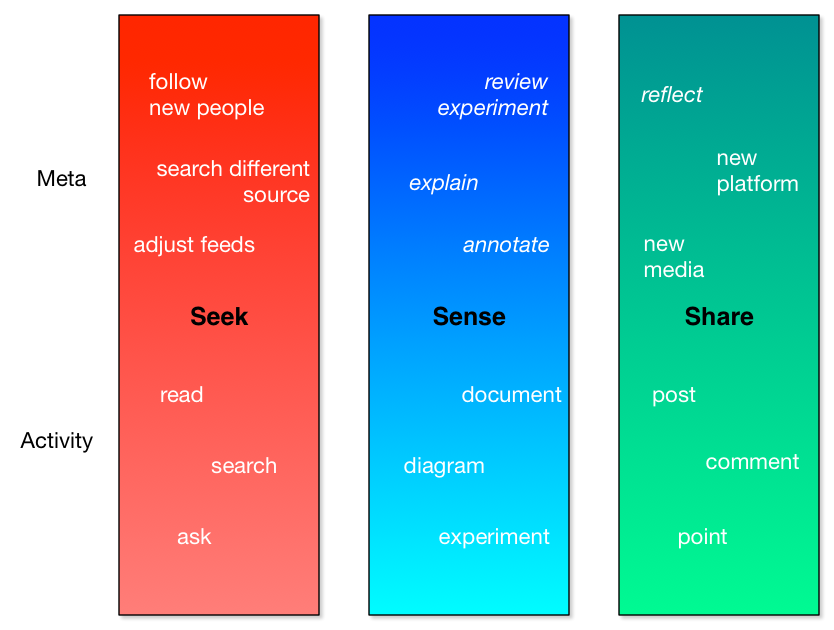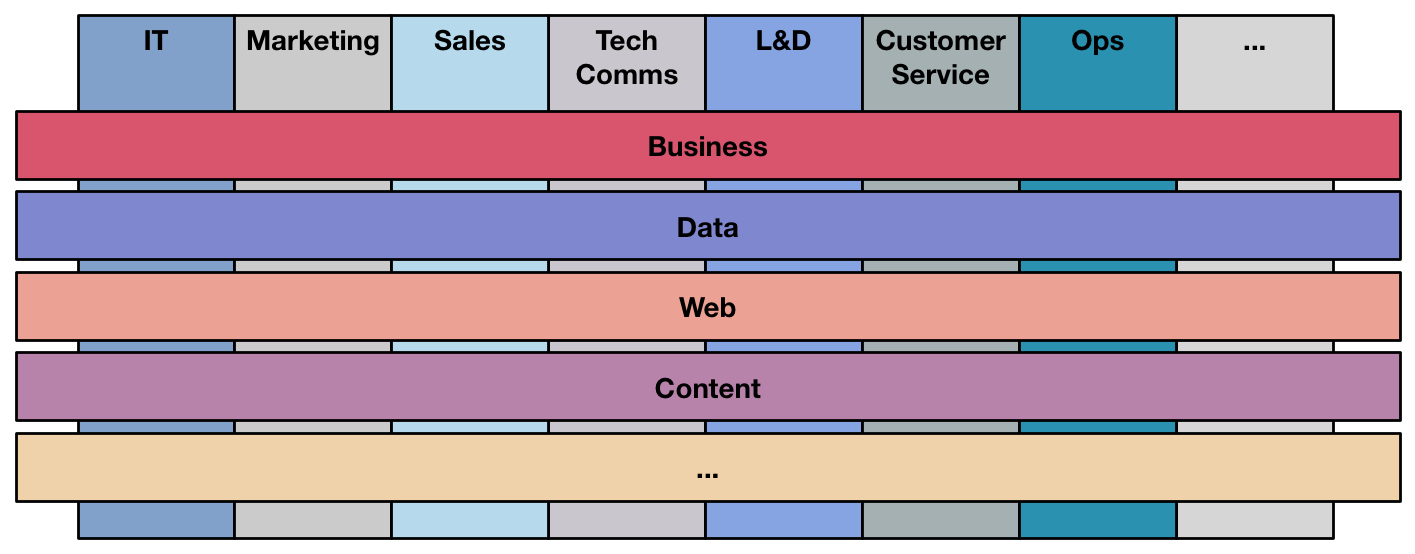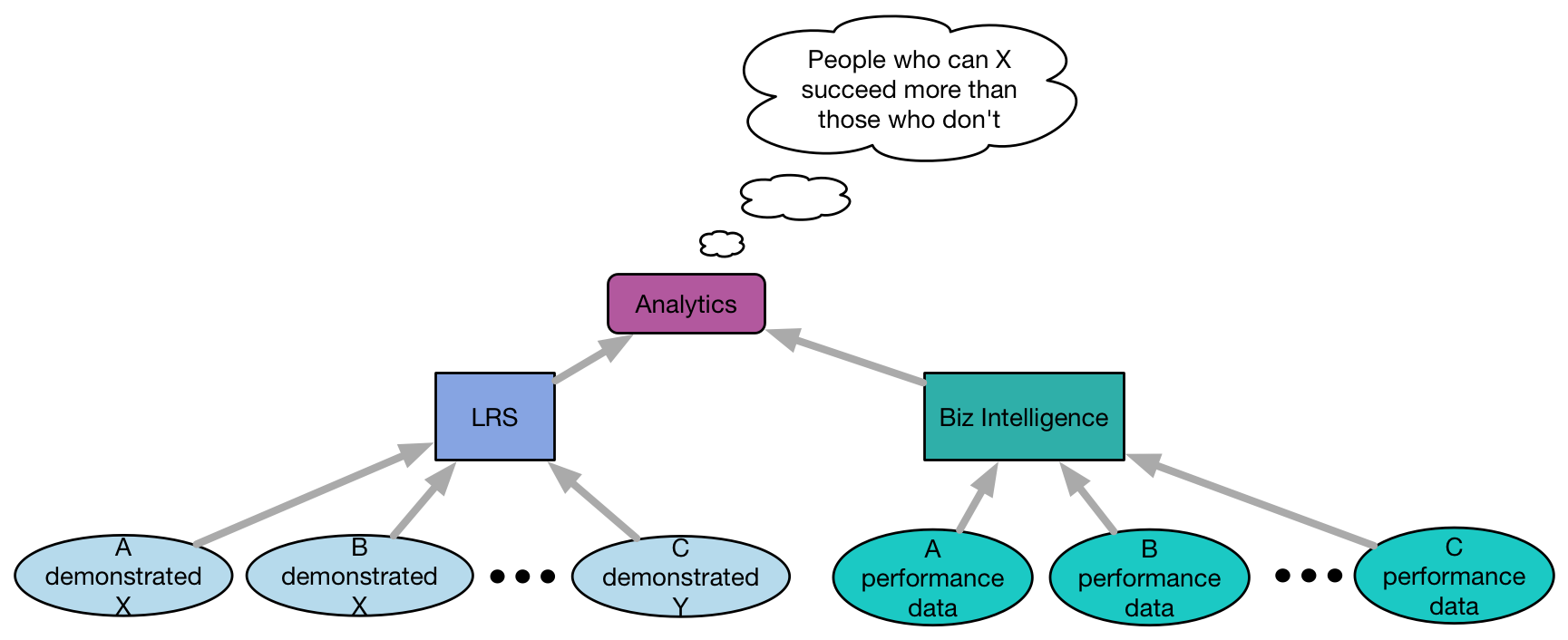So, as another outcome of the xAPI base camp a few weeks back, I was wondering about tracking not only learning, but meta-learning. That is, not only what activity might mean ‘learning’, but what might mean ‘meta-learning’ is happening? I started wondering about a vocabulary, but realized that you’d have to have activity that you could actually detect that was evidence of meta-learning. And I didn’t know what that was. Naturally, I started diagramming.
I started with Harold Jarche’s Personal Knowledge Mastery model of Seek-Sense-Share. This is about how you continue to learn in manageable ways, and it served as an organizing framework. To each of the elements, I attributed activities that would constitute learning in that model, and then above it I was thinking what would constitute meta-learning.
 So, for seek, we start with reading what comes into your feeds, searching about particular topics, and asking questions of your network. Sensing is about reconciling what’s found with your own knowledge. So you could write or present, diagram (see what I did there?), or experiment. And then to share you can post, or comment, or send a pointer to something.
So, for seek, we start with reading what comes into your feeds, searching about particular topics, and asking questions of your network. Sensing is about reconciling what’s found with your own knowledge. So you could write or present, diagram (see what I did there?), or experiment. And then to share you can post, or comment, or send a pointer to something.
So what are actions that reflect on those actions? For seeking, you can adjust your feeds of what you follow, you can try a different search mechanism, or you can follow new people. These are all detectable, I reckon.
For sensing, I see it as a little harder. How do we know when you’re annotating a document with the underlying thinking, not just documenting your progress? How do we know when you’re explaining the thinking behind a diagram (here it’d be about my choice of vertical dimension, and spreading things below and above)? How do we know when you’re actually reviewing your experimental approach or the results?
For sharing, it’s a mixed bag. If you choose to use a different media (perhaps it’s relative, like when I created an animation after blogging for > 10 years ;), we might know. If you try out a new social media platform/channel, we can probably note that. If you’re reflecting on your comments from others, how would we know?
And this is just one way of carving it up. The point being, meta is good, but detecting and tracking it is hard. We might ask people to annotate it with tags, but that’s problematic too. I have no obvious answers, but it’s a question I had, and I’m thinking out loud about it. I welcome your thoughts, too.

